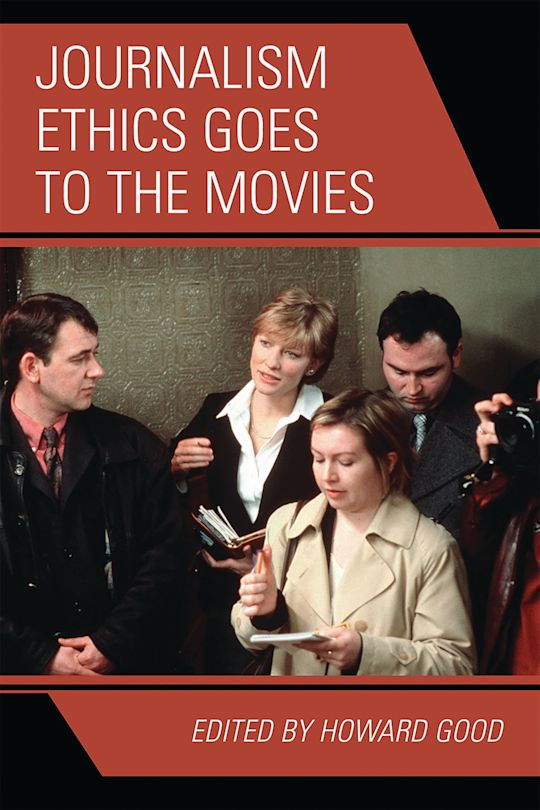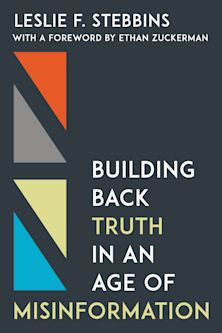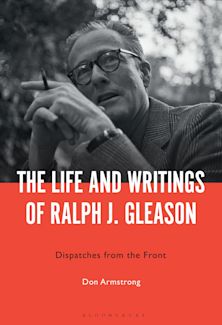- Home
- ACADEMIC
- Film & Media
- Journalism
- Journalism Ethics Goes to the Movies
Journalism Ethics Goes to the Movies
Howard Good (Author) , Berrin A. Beasley (Contributor) , Sandra L. Borden (Contributor) , Robert Brown (Contributor) , John Carvalho (Contributor) , Michael Dillon (Contributor) , Matthew C. Ehrlich (Contributor) , Joseph C. Harry (Contributor) , Lee Anne Peck (Contributor) , Bill Reader (Contributor) , Joe Saltzman (Contributor) , S Holly Stocking (Contributor)
Journalism Ethics Goes to the Movies
Howard Good (Author) , Berrin A. Beasley (Contributor) , Sandra L. Borden (Contributor) , Robert Brown (Contributor) , John Carvalho (Contributor) , Michael Dillon (Contributor) , Matthew C. Ehrlich (Contributor) , Joseph C. Harry (Contributor) , Lee Anne Peck (Contributor) , Bill Reader (Contributor) , Joe Saltzman (Contributor) , S Holly Stocking (Contributor)
You must sign in to add this item to your wishlist. Please sign in or create an account
Description
How far should a reporter go for a story? What's the role of the press at the scene of an emergency, or a murder? Why has journalism suddenly become so susceptible to plagiarism? Here's a book that poses these and other urgent questions-and offers candid answers. At a time when professionals and the public alike worry that journalism has lost its way, Journalism Ethics Goes to the Movies is available to provide much-needed, accessible guidance.
Its twelve chapters, written by some of the nation's leading journalism scholars, explore issues that should concern anyone who aspires to a career in journalism, who works in the field, or who relies on news for daily information. Best of all, as the title suggests the contributors conduct their dynamic and engaging investigations at the movies, where sportswriters, war correspondents, investigative reporters, crime reporters, spin doctors, TV anchors, and harried city editors tackle these pressing issues. Journalism Ethics Goes to the Movies isn't your typical textbook. Using popular movies from Wag the Dog to Good Night, and Good Luck to illustrate the kind of ethical dilemmas journalists encounter on the job, this student-friendly book is sure to spark interest and stimulate thinking.
Table of Contents
Chapter 2 Introduction
Chapter 3 1 Responsible Journalistic Inquiry: The Paper
Chapter 4 2 Fabrication in Journalism: Shattered Glass
Chapter 5 3 Political Manipulation of the Media: Wag the Dog
Chapter 6 4 What Is Good Work?: Absence of Malice
Chapter 7 5 Deception and Undercover Journalism: Mr. Deeds Goes to Town, Mr. Deeds
Chapter 8 6 Covering Sports: The Pride of the Yankees
Chapter 9 7 When Journalists Are First Responders: Die Hard
Chapter 10 8 Style Over Substance: Broadcast News
Chapter 11 9 Ethics in Black and White: Goodnight, and Good Luck
Chapter 12 10 Crime Reporting: Veronica Guerin
Chapter 13 11 The Utopian Nature of Journalistic Truth: The Year of Living Dangerously
Chapter 14 12 Journalism and the Victims of War: Welcome to Sarajevo
Chapter 15 Afterword: Left Hanging
Chapter 16 Discussion Questions
Chapter 17 For Further Reading
Chapter 18 Selected Journalism Movies for Further Viewing
Chapter 19 Class Projects for Instructors
Product details
| Published | 23 Oct 2007 |
|---|---|
| Format | Ebook (Epub & Mobi) |
| Edition | 1st |
| Extent | 202 |
| ISBN | 9781461638339 |
| Imprint | Rowman & Littlefield |
| Publisher | Bloomsbury Publishing |
About the contributors
Reviews
-
Whether used as a whole, by chapter, by movie, or by topic, Journalism Ethics Goes to the Movies follows its predecessor as an insightful examination of current media ethics issues and a valuable teaching tool for lectures or class discussions.
2008, Journal of Media Ethics
-
The ideal journalist! The rogue reporter! This lively book on the presentation of journalism in film has it all. The list of contributors has as much star-quality as the movies discussed, with expert ethics educators telling readers which movies they'll be showing in their classes this term and why. This book deserves space on the shelf of every scholar who thinks seriously about journalism ethics or about the presentation of journalism in popular culture.
Deni Elliott, University of South Florida, St. Petersburg



































